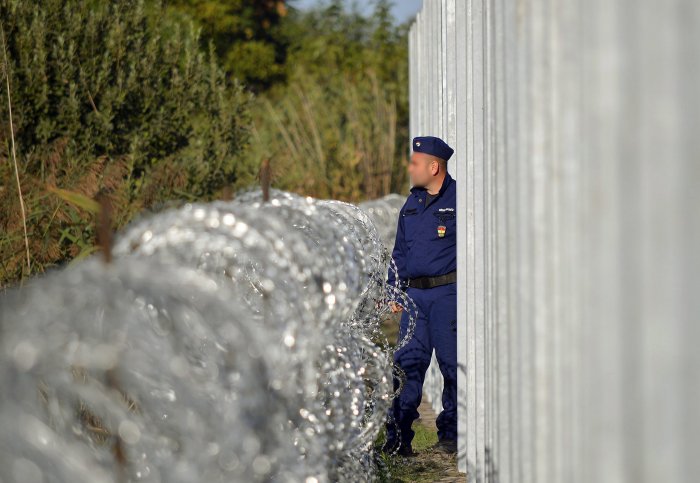Battling to Keep the Coronavirus at Bay

“When France sneezes, the whole of Europe catches a cold,” the 19th century Habsburg-era statesman Klemens von Metternich is credited with having said in relation to the French Revolution and the rise of Napoleon. In the 20th century, America came to replace France, and the rest of the world stood in for Europe. Some might argue in the 21st century that China has now deposed the United States. Whether that’s actually true or not, the COVID-19 coronavirus that was first reported in Wuhan, the capital of China’s central Hubei province, in December 2019 has certainly had tragic results for much of the rest of the planet.
At the time of writing, the virus has not been detected within Hungary’s borders, but it does feel like it is circling closer. Greece has confirmed its first case, as have Austria, Croatia and Switzerland (all in people returning from trips to northern Italy). France and Germany have new cases (the former has also reported its first death); Spain has its first mainland case. In Italy, where there have been 11 deaths, the virus is spreading into the central and southern regions.
A group of 11 students, two drivers and one accompanying adult who returned to Hungary from a school trip to Lombardy in Italy have been put into a two-week quarantine at the Szent László Hospital in Budapest, Hungary’s designated clinical center for receiving, treating and isolating those affected. The National Institute for Infectology and Haematology is based at the hospital.
There is (again, at the time of writing, but this is a very fluid situation) one Hungarian being treated for the infection: a crew member on the Diamond Princess cruise liner quarantined in Japan. He is not believed to be seriously ill. (A woman being treated in a hospital in Vienna who was thought to have contracted the virus turned out to be a false alarm.)
Budapest Airport, the operator of Ferenc Liszt International Airport, began screening flights from China at the end of January; back then, three airlines operated 13 flights a week from five cities, but Shanghai Airlines and Hainan Airlines have suspended all flights until the end of March, while Air China has reduced the frequency of its flights and, from March 4, will fly only once a week on the route. On Monday (February 24), Budapest Airport also began screening flights from northern Italy. On the morning that we went to print (Wednesday, February 26), it announced that was being extended to also include passengers from Seoul, South Korea.
All of this illustrates how interconnected cheap air travel has made our world (not to mention the ever busy sea lanes, highways and railways). Health ministers from the EU have thought about but, for now, held off on closing borders. “We’re talking about a virus that doesn’t respect borders,” bbc.com quoted Roberto Speranza, the Italian health minister, as saying.
The price of gold is rising, while shares around the globe have been falling, including at the Budapest Stock Exchange, where the BUX has gone from 45,803.84 on February 24 to 42,754.55 at 9 a.m. on February 26. That is unfortunate, to say the least, but not a tragedy when people are dying.
Much of the key advice is surprisingly basic, beyond not traveling to the identified hot spots, and includes plenty of hand washing, avoiding touching your eyes, nose and mouth, and covering your mouth with your bent elbow or a tissue when you sneeze or cough. Keep well, and spare a thought for all those working in the health sector.
Robin Marshall
Editor-in-chief
SUPPORT THE BUDAPEST BUSINESS JOURNAL
Producing journalism that is worthy of the name is a costly business. For 27 years, the publishers, editors and reporters of the Budapest Business Journal have striven to bring you business news that works, information that you can trust, that is factual, accurate and presented without fear or favor.
Newspaper organizations across the globe have struggled to find a business model that allows them to continue to excel, without compromising their ability to perform. Most recently, some have experimented with the idea of involving their most important stakeholders, their readers.
We would like to offer that same opportunity to our readers. We would like to invite you to help us deliver the quality business journalism you require. Hit our Support the BBJ button and you can choose the how much and how often you send us your contributions.


.png)







.png)
